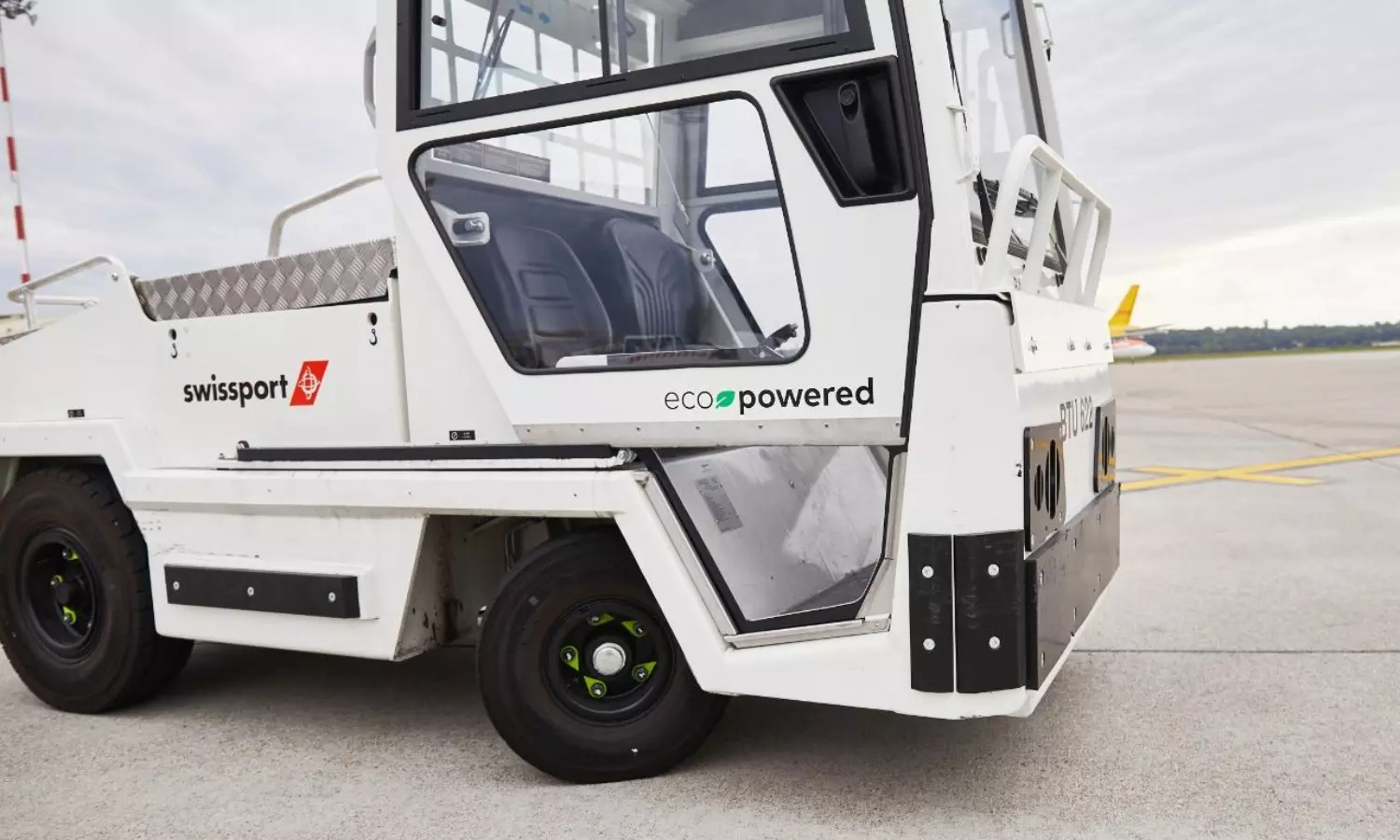Swissport lays out new long-term sustainability goals
Swissport's sustainability agenda is built around a set of ESG measures which includes the de-carbonization of its operations with a focus on introducing more electric vehicles.

Swissport International AG has set extensive goals for the de-carbonization of its operations, waste management and circularity, and for diversity and inclusion among its people.
Swissport's sustainability agenda is built around a set of ESG measures which includes the de-carbonization of its operations with a focus on introducing more electric vehicles; the avoidance of waste in all areas of the business, from cargo centers to airport lounges; as well as additional efforts to further improve the company's attractiveness as an employer, not least by means of a leading diversity and inclusion agenda.
"As a signatory to the UN Global Compact since 2011, Swissport committed to its responsibility for the planet and society," says Warwick Brady, President & CEO of Swissport International AG. "And as the global market leader in aviation ground services, it is incumbent upon Swissport to set the benchmark and drive change in this area, too. We are committed to contributing our share in helping to make a more sustainable aviation future a reality. For us, sustainability goals are not a compulsory exercise, but an opportunity which contributes to long-term value creation. A sustainable service delivery also benefits our customers and their corporate profiles."
55% share of electric vehicles, 42% less CO2
Swissport is focusing on reducing its global carbon footprint, which is mainly caused by the operation of fossil-fuel-powered vehicles.
"On the way to the humanity goal of 'Net-Zero,' we want to reduce our CO2 emissions by at least 42% by 2032," says Nadia Kaddouri, Swissport's Chief Strategy and Sustainability Officer. "To achieve this, we will increase the share of electrically powered vehicles in our fleet to at least 55% over the same period."
Waste management and circularity
n air cargo handling, Swissport plans to introduce mandatory waste-avoidance as part of its waste-management policy, to be rolled out at all of its 120 air cargo centres by 2027.
Attracting and retaining talent
In the area of talent acquisition and management, Swissport is also laying out new, concrete objectives. "Our people are the guarantors of our success," says Christopher Rayner, Chief People Officer. "We are convinced that employee diversity can make us a more creative, innovative, and ultimately more successful company."
Across Swissport's business units globally, one-third of all employees are women, exceeding IATA's target of 25%. The same share has been reached in the Global Management Team, the company's highest executive level. Currently, Swissport is putting its focus on the leadership levels below the C-level, initially aiming for a proportion of at least 25% women there. Within five years, Swissport intends to increase the share of women in management to 40%.
To make aviation ever safer on the ground as well, we also work tirelessly toward continuous progress in the areas of work-related injuries and damage to our customers' aircraft, as well as their and our equipment.


